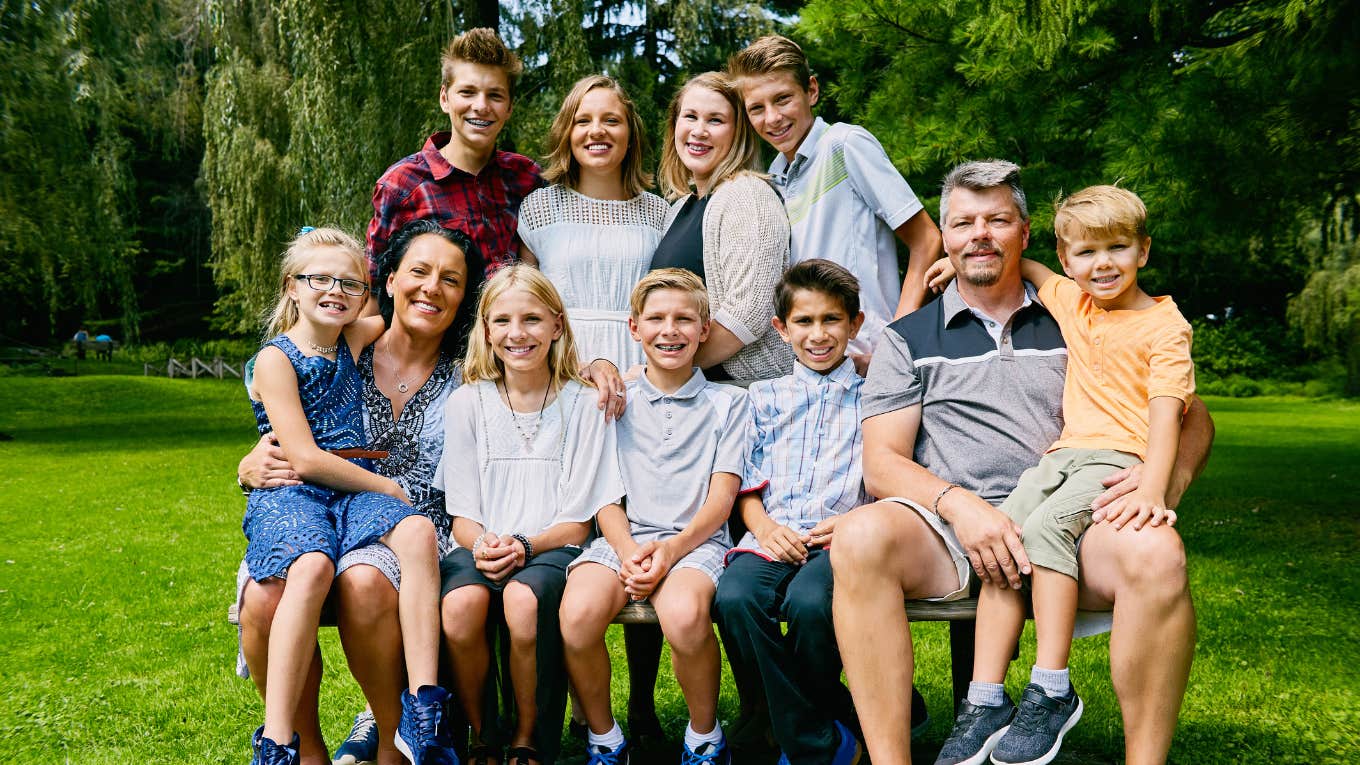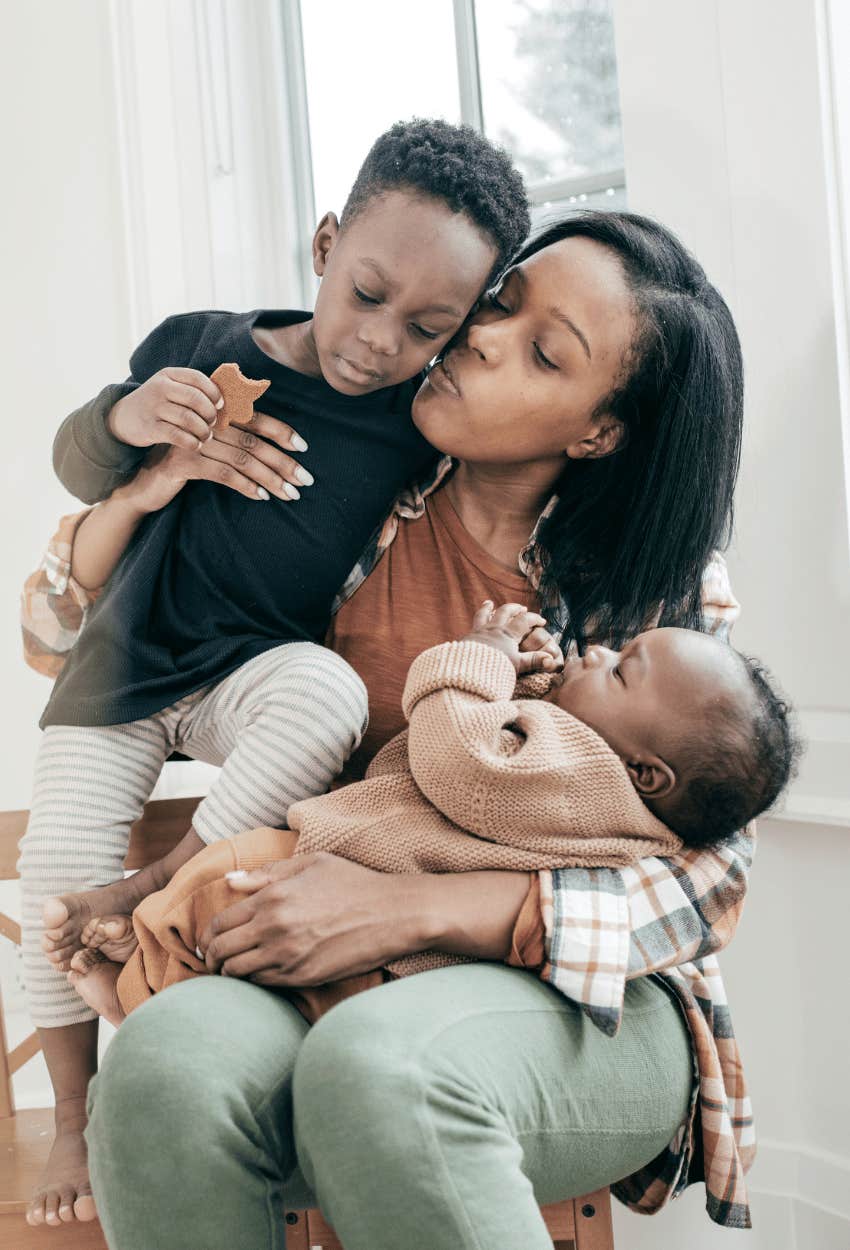Woman Who Is The Eldest Of 8 Kids Begs People To Stop Having Big Families
Having a lot of siblings is not all it's cracked up to be.
 legenda | Shutterstock
legenda | Shutterstock While having a close-knit family and siblings to chat with can be a dream come true, it’s the quality, not the size, of the family that truly matters. In fact, one woman who grew up in a big family admitted that it was a chaotic nightmare more than anything else.
Now, as the eldest of eight kids, she is using her knowledge to urge parents to truly consider what their lives will look like if they have big families and, more importantly, how it can affect their kids.
The woman, who is the eldest of 8, is begging parents not to have so many kids since it is impossible to meet all of their needs.
In 2023, the average number of children under 18 per family in the United States was 1.94 (or, in simpler terms, about two kids per family). However, some families opt to have more children than that, with a few families even reaching the double digits.
Madison (@hertraline) grew up in one of these families as the eldest of eight. While her big family might be something other people yearn for, she explained why having so many children was not actually in their best interests, no matter how wealthy the parents might be.“You cannot have half a dozen plus kids and be adequately meeting each one of those child's needs,” Madison asserted in a TikTok video.
“I am the oldest of eight, okay? I have been there and I know and I promise you, you cannot meet everybody's needs adequately when you have that many children.”
The woman said that large families usually try to justify their decision to have a lot of kids in two specific ways.
The first one is that they believe that love doesn't divide but multiplies. The second is that every family is different, and some will be able to support a lot of kids while others may not. However, neither of these justifications takes the well-being of the kids into account.
Madison debunked these beliefs using her own experiences.“Love may divide, but time doesn't, and children need time,” she said. “A child's need for time — the amount of time a child needs from a caregiver — doesn't reduce just because there are more children in the picture or because you love them just as much.”
She went on to say, “When you have two kids, you can give them each an hour of uninterrupted one-on-one time a day, and that would take you two hours a day. When you have eight kids like my parents did, that would take up eight hours every single day.” Madison said that while she was growing up, each kid would have alone time with their parents twice in an entire year.
She also acknowledged that while some kids may enjoy growing up with a lot of siblings, even if they don’t spend much time with their parents, there is no large family where every single member will tell you that they enjoyed it. They may have been the oldest stuck taking care of their siblings instead of being a kid. They may have felt especially neglected by their parents, whose attention was more important to them than that of their siblings.
Some parents may not want to hear the reality of having a big family, but the woman said they owe it to their kids to consider if it truly is a suitable option for them.
Madison encouraged parents to ask themselves if they will be able to dedicate at least one hour a day to each kid if they plan on having more than they already do. If not, they may want to alter their family plans for the sake of their already existing children. “Money can’t buy you more than 24 hours in a day,” she pointed out.
 kate_sept2004 | Canva Pro
kate_sept2004 | Canva Pro
Due to receiving less individual attention compared to children from smaller families, children from larger families may face unique challenges, including cognitive decline, academic struggles, and feeling as if they are not valued.
While every person’s experience of being in a big family will be different, it is important to take into account what can potentially happen to children who feel overlooked. Sometimes, for children, love just isn't enough.
Megan Quinn is a staff writer with a bachelor's degree in English and a minor in Creative Writing. She covers news and lifestyle topics that focus on justice in the workplace, personal relationships, parenting debates, and the human experience.
